We are now one month into our trip along the East Coast of Australia. Despite not being able to see everything along this 4000 km coast, there are some must-see’s and some must-do’s. K’gari Island, the aboriginal and now official name of the more commonly known Fraser Island, is definitely a must-see. K’gari, which is UNESCO World Heritage, is the largest sand island on the planet, covering an area of 1655 km2 of pure sand. Sand islands, like K’gari and the nearby Bribie, Moreton and North Stradbroke Islands were formed over thousands of years, and in this case almost a million. The Butchulla people, the local aboriginal community of K’gari, are said to have lived on the island for more than 5000 years, perhaps even as long as 50,000 years. However, despite being a must-see, for its 75 mile long beach, wild dingoes, beautiful lakes, and many more; I am going to focus on a “must-do”, the “must-do” on the island. It’s easy to find what you want to see in a given place, but the difficult part, is finding how best to experience it.
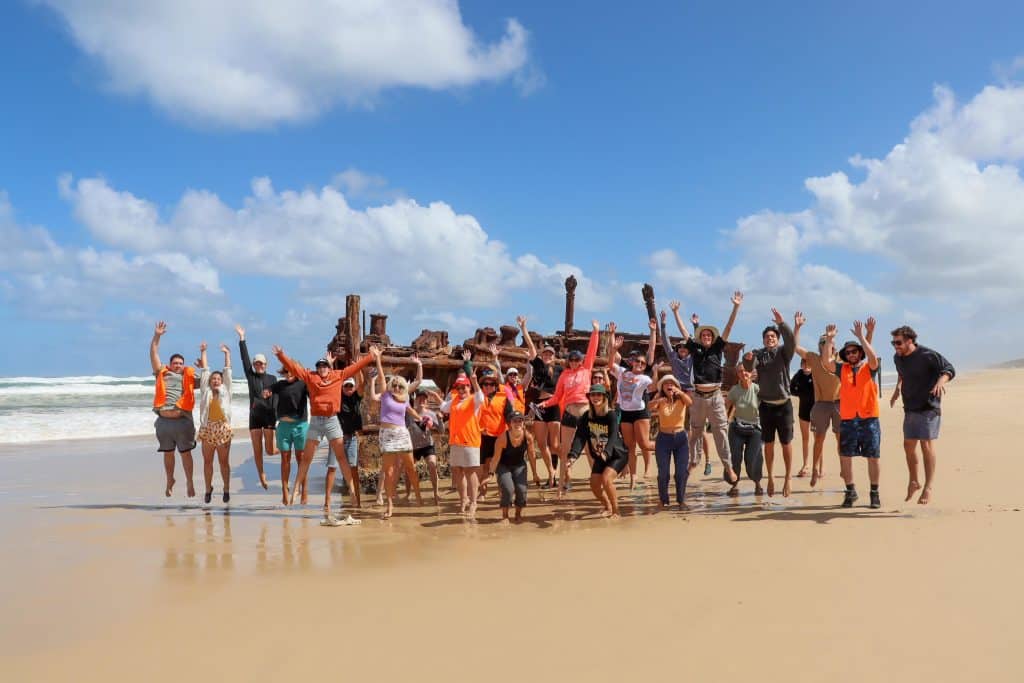
Drop Bear’s K’gari Adventures, run by a wonderful couple, Mark and Hana, and a passionate team alongside them, could, to the naked eye seem no different to all the other companies offering 4WD tours to the island. However, they do things differently, starting with the warmth and family feel they inject into their tours.
On top of running “classic” tours, resembling those of the other companies, exploring the many sights on the island in a 4WD albeit with an eco twist; they also organize beach clean up tours. Having just come back from one a few hours ago, this is what I am going to tell you about today, as the “must-do” on K’gari Island. First of all, it is a three day tour, including two nights in their very cozy Eco Retreat. This being the accommodation for all their tours, is one of the many things that sets them apart from their competitors. You can be picked up from either Noosa or Rainbow Beach, where you then head to the short ferry ride across to the island. The minute you arrive on the island, the magic and the cleaning begins. Being a group of 28, we were separated into four different cars. Hana quickly explained the process with a drawing in the sand and we were off, in groups of two, with each group having approximately a 300 meter stretch of beach to cover. We got our gloves, hi-vis and bags and started filling. Admittedly, the beach seemed clean at first glance, which would explain why it is sold as a pristine beach. However, if you look closely, there is plastic everywhere. You can’t take two steps without bending down and picking something up.
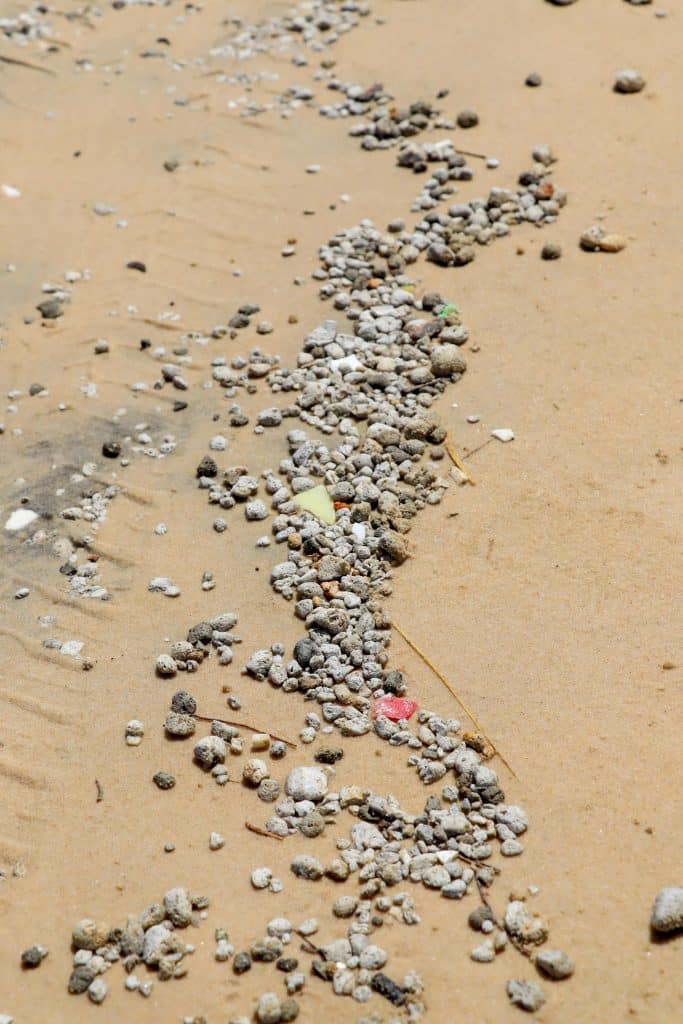
It is very rewarding, you feel very good about yourself and it didn’t at any point, at least to me, feel like a chore. The hardest thing, however, was having to leave all the micro plastics, which the beach is covered in, to have time to concentrate on the bigger pieces; before they turn into micro plastics themselves. We spent around an hour picking rubbish up before we had our first break, accompanied, as ever, by biscuits and fruit. That was another highlight, the food. You are very well fed while on the island with Mark and Hana! The rubbish picking continues throughout the afternoon and the next morning.
The evenings, once everyone is back at the Eco Retreat, are spent together, playing games, listening to music, and eating of course. Also, Mark and Hana are among the only ones with a license that allows them to have a fire on the island so, if the weather allows it, you can all gather around a cozy campfire and exchange thoughts and stories. The next day, after a long clean up session in the morning, and a tasty lunch; it’s time for some of the must-see’s of the island. The first one being the Maheno Shipwreck, which washed ashore in 1935 and which Mark, who has been coming to the island all his life, has an endless amount of stories about. After that, you spend the afternoon at Eli Creek, either floating down it, swimming, playing games, you name it.
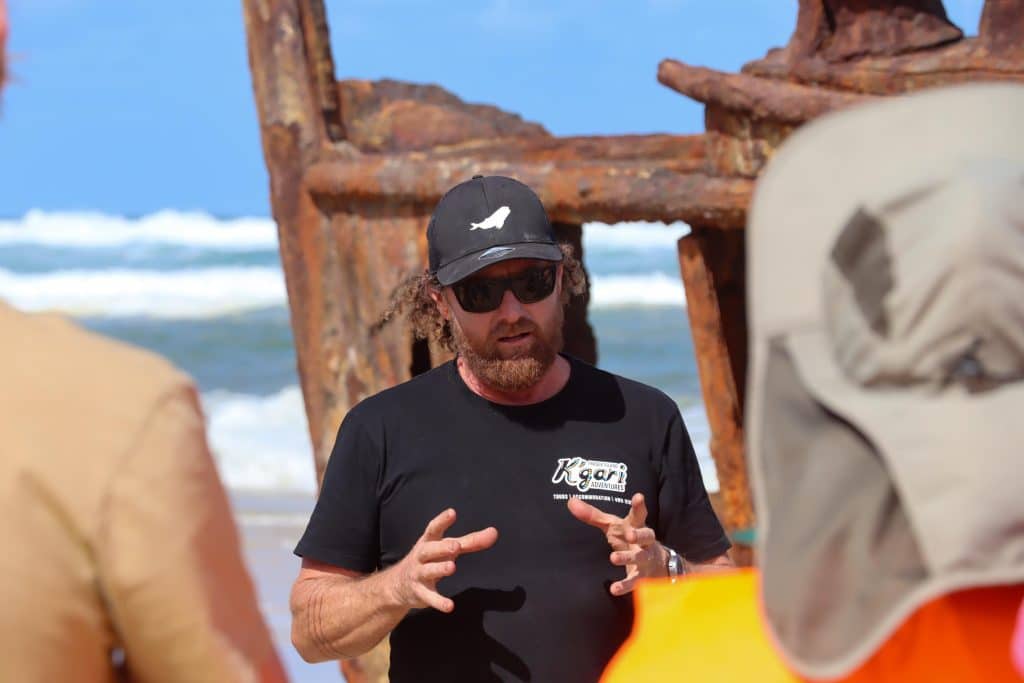
When you get back to the retreat, it’s sorting time. The bags are emptied onto big tables and everyone does their part in the sorting of the plastic. Admittedly, most of the rubbish goes to a landfill, due to Australia’s limited recycling; as a consequence of the sheer size of the country. However, a good amount of the plastic, notably the high-density plastic, for instance bottle caps (which there are lots of), milk cartons, cleaning product containers, are sent to a company called ZeroCo. ZeroCo is an Australian company specializing in body care and home cleaning products, whose mission is to «untrash the planet». To do that, they turn single-use plastic gathered from beach clean-ups like this one and turn it into «Forever Bottles»; which you refill once empty. So, not only do they reduce the amount of single-use plastic by turning it into “infinite-use” plastic, they also reduce the amount of the single-use plastic that we buy that eventually finds its way to the ocean. You may be thinking that this doesn’t concern you because you buy “recyclable” plastic. However, something I learnt on this trip is that plastic can only be recycled a maximum of three times. As Hana said, “we are not going to recycle our way out of this problem, we need to reduce the amount of single-use plastic being bought, and therefore, produced”. The toiletries and cleaning products used at the Eco Retreat are all ZeroCo.
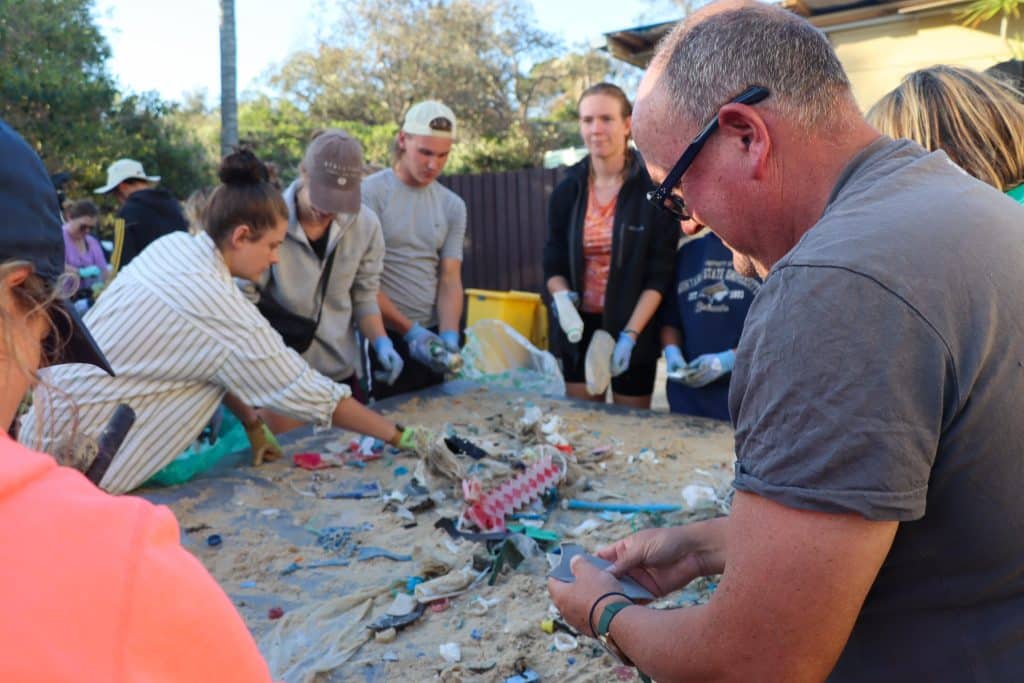
Only after sorting our collections out, did we find out the amount we had collected. 711kg of rubbish. We, a group of merely 30 individuals, collected 711kg of rubbish, from a pristine beach, in only around 7 hours. This means we picked up over 100kg per hour, meaning we each picked up, on average, over 3kg per hour.
How’s this for an idea?
Just imagine if, as a football fan, instead of paying £50 to go and watch a game at Wembley, the price to pay was an hour of cleaning up a beach, a park or anywhere. 270 000kg. That’s how much rubbish would be collected if a full Wembley Stadium picked up rubbish for a single hour.
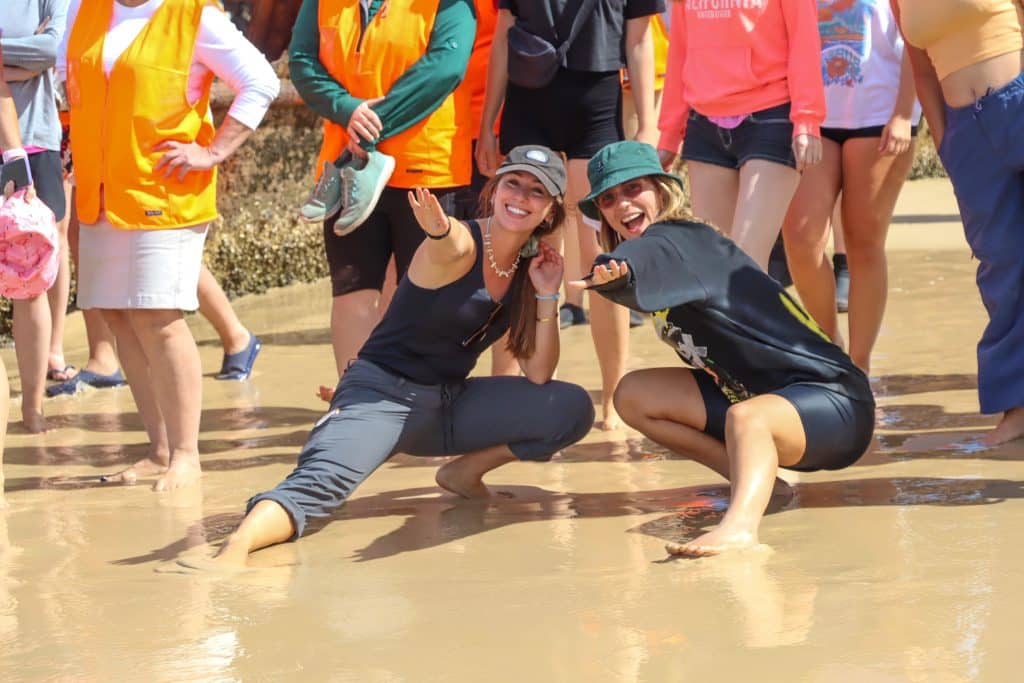
The third and final day is solely for exploring the island. We drove through the rainforest before spending a while soaking up the sun and the views of Lake Boorangoora, more commonly known as Lake McKenzie. Just a reminder, K’gari is a sand island and in that, the only one on which a rainforest has not only survived but thrived, boasting a wide variety of pines, ferns and many other tropical plants. Mark’s knowledge of the island is second to none and alongside guiding us through the rainforest on foot at Central Station, he also gave us numerous facts over the walkie-talkie while driving.
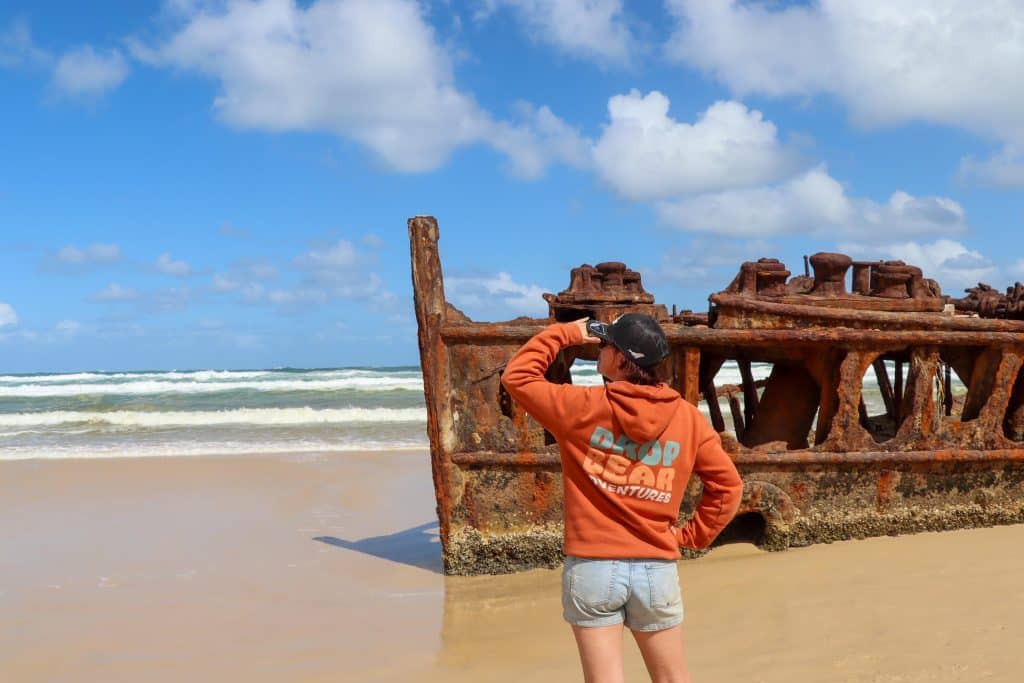
Both Mark and Hana are incredibly inspiring in the work they do and the effort they put into every one of their ongoing projects. For example, they are trying to get the green light to turn all of their vehicles electric. They also plan to have several “bag stations” dotted around the island to encourage the entire community (local and visiting) to grab a bag and help keep K’gari plastic free; as well as fighting hard to keep laws that can govern our rapidly changing climate.
The final touch and the icing on the cake was Hana’s decision to drive all the way back to Noosa along the beach. That meant that we got great views of the Great Sandy National Park and witnessed the rainbow coloured sand cliffs which give their name to Rainbow Beach.
Having not planned anything at all, we of course jumped at the opportunity. However, if it weren’t for Hana driving us to her place, lending us camp mattresses and driving us to a campground, we would have been homeless for the night. That just proved to us, not for the first time, what a lovely and inspiring woman she is and why people like Hana and Mark are vital to our education and our planet’s future.
Thanks Maurice for the wonderful blog! Feel free to follow his travel blog here!
More interesting reads:
